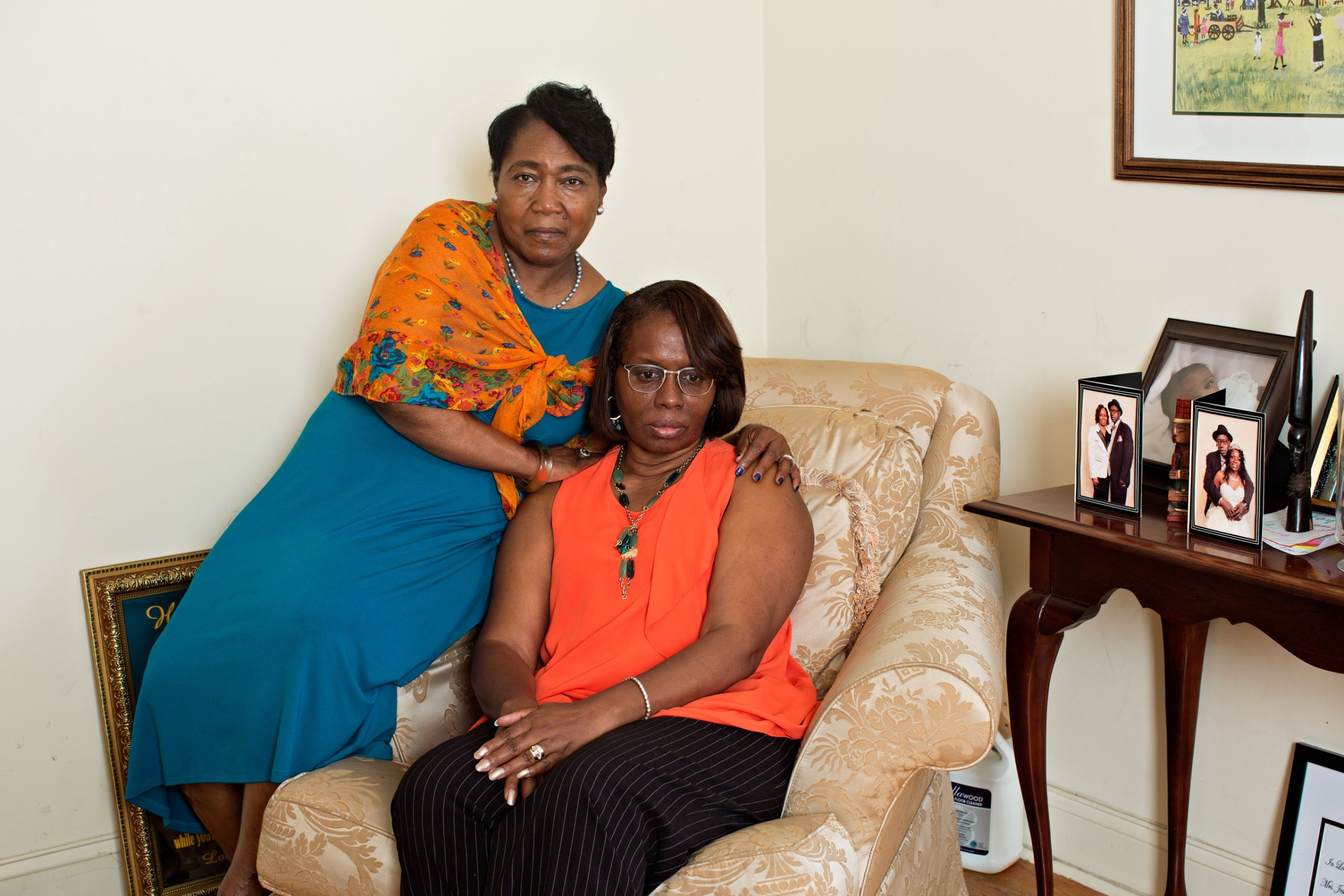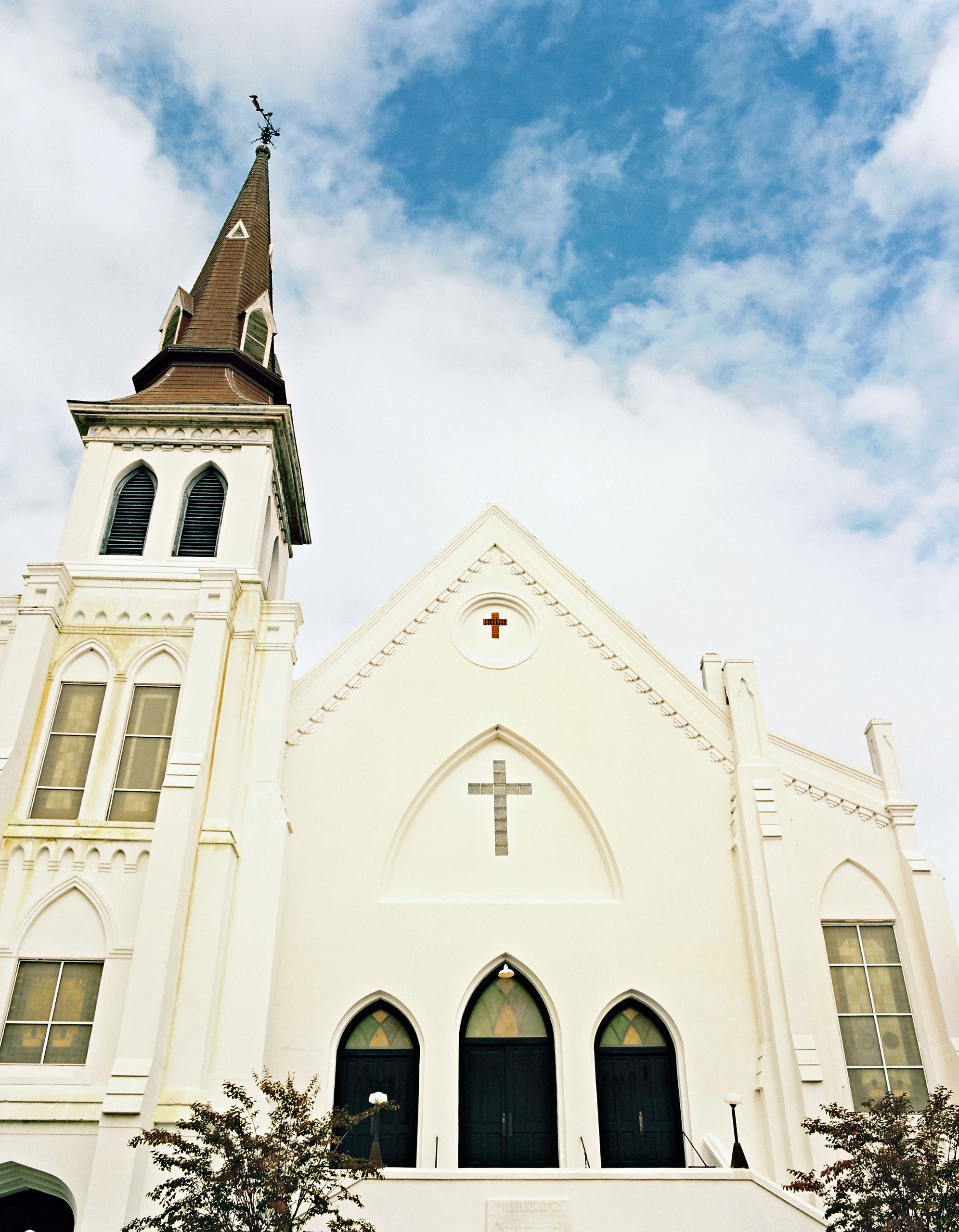
On Friday night, Felicia Sanders plans to walk up the steps of the Second Presbyterian Church for an event to mark the year anniversary of the murder of her 26-year old beloved son Tywanza Sanders and her 87-year-old aunt Susie Jackson. The two were killed at Emanuel AME Church, the shadow of whose spire will nearly touch Second Presbyterian’s steps in the waning evening Charleston sun. It is no accident that Sanders has chosen to mark the grim anniversary of the slaying before her eyes of her son and aunt—and seven other African American congregants—by an avowed white supremacist here, at a white church.
“I wanted to do this for Tywanza. I want to prove that boy wrong. I wanted to show forgiveness and love between the races,” Sanders said last September at her first Bible study at Second Presbyterian. That night, her hands gripped the chair when a young white man entered the room. But she forced herself to embrace this church and these people and unite with them in worshipping the same Jesus.
It was a year ago Friday that another young white boy entered Emanuel to attend its regular Wednesday Bible study. He prayed with his victims for nearly an hour before he opened fire in the church basement, killing nine and leaving Sanders, her now 12-year-old granddaughter and Polly Sheppard alive. Though much has been written about the nine souls who lost their lives that night—indeed, some charities in the wake of the tragedy only gave to the victim’s families, all but ignoring the survivors—it is these three who must live with those experiences most keenly every day. They are the ones who must testify in the upcoming state and federal cases against now 22-year-old Dylann Storm Roof, the alleged killer who attacked “Mother Emanuel,” he told the survivors, because he wanted to start a race war.
Read More: How Do You Forgive a Murder?

In the year since the world was shocked and humbled by the Emanuel victims’ forgiveness of Roof in the face of such an atrocity, killing the pious at prayer, Sanders and Sheppard have struggled and found strength in that forgiveness. Sheppard, whom Roof left alive as a witness, is convinced that God saved her so that she could save Roof. She says she’d be willing to go pray with him in prison, if he’d allow her. “I think that He left us here, that’s part of the grace. And He left us here to do something, be a light to someone else,” Sheppard said.
Sanders would not want to pray with Roof, whom she can hardly still name the pain is too raw. Instead, she has chosen to mend by forging lasting bonds with the very people Roof wanted her to hate. For the last nine months, every Wednesday Sanders has gone to Bible study at Second Presbyterian.
Sanders has not stepped foot back in the basement of Emanuel church, where she has spent her entire life worshipping—nor will she ever. Before Sunday services she won’t drink fluids, so as to avoid having to go to the bathroom at Emanuel—the only restroom is downstairs. So, in the wake of the shooting, she had to find another Bible study group.
Sanders had never needed guidance more: she often couldn’t sleep, reliving that terrible night. Sanders and her granddaughter only survived because they were so covered in the blood of their loved ones that the shooter thought they were already dead.
Enter Reverend Cress. Though the Second Presbyterian has stood behind Emanuel all of Sanders’ life—indeed the church was founded in 1809, five years before Emanuel—Sanders had never set foot in it until the massacre. Rev. Cress Darwin, Second Presbyterian’s pastor, offered his sanctuary as an overflow venue for Tywanza and Susie’s joint funeral. Reverend Cress, as he’s called by his congregants, offered his guidance to Sanders, still reeling not only from the loss of her relatives, but virtually the entire preaching staff at Emanuel, her spiritual guides.
So, Sanders turned to Reverend Cress for guidance: she had brought her son to church to keep him safe, why had God taken him? And Susie? Why had 21-year-old avowed white supremacist come into Emanuel, the oldest African-American AME church in South Carolina, and taken away nine of her family and friends? And why had God let her and her granddaughter survive? She wanted—no needed—to return to Bible study to find answers but she could not bear to return to Emanuel. Come here, Reverend Cress offered. And that was how Sanders and her granddaughter became the only two regular African-American worshippers at Wednesday Bible study.
The news is not easy for Sanders and Sheppard these days. Orlando, San Bernardino—so much death, so much hatred. They pray that the world will not forget them and their example, that the legacy of Martin Luther King Jr. will not fade to that of Malcolm X. For the only way to end the cycles of violence, they say, is to forgive it. “Vengeance is the Lord’s, only he can carry out retribution,” Sanders says. “Who am I to question the Lord? I trust his justice.”
More Must-Reads from TIME
- Donald Trump Is TIME's 2024 Person of the Year
- Why We Chose Trump as Person of the Year
- Is Intermittent Fasting Good or Bad for You?
- The 100 Must-Read Books of 2024
- The 20 Best Christmas TV Episodes
- Column: If Optimism Feels Ridiculous Now, Try Hope
- The Future of Climate Action Is Trade Policy
- Merle Bombardieri Is Helping People Make the Baby Decision
Contact us at letters@time.com